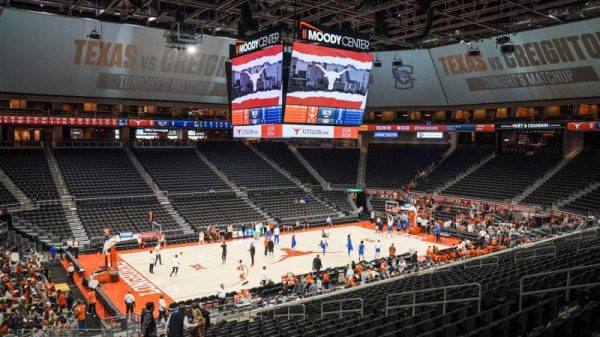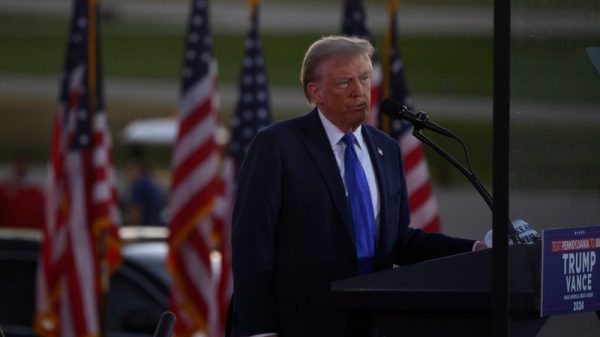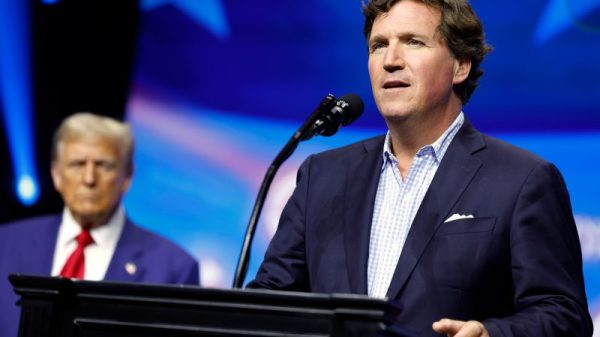A voting advocacy group is suing a political consultant and companies behind an AI-generated robocall of President Biden that in January urged New Hampshire voters not to participate in the state’s presidential primary.
The League of Women Voters of New Hampshire accuses campaign consultant Steve Kramer and telecom companies Life Corp. and Lingo Telecom of voter intimidation, coercion and deception in violation of federal and state laws, including the Voting Rights Act and the Telephone Consumer Protection Act. The lawsuit, filed in the U.S. District Court of New Hampshire on behalf of three voters who said they received the robocalls, asks a judge to fine the defendants and block them from producing, generating or distributing other robocalls generated with artificial intelligence.
“These deceptive robocalls attempted to cause widespread confusion among New Hampshire voters,” Liz Tentarelli, president of the League of Women Voters of New Hampshire, said in a statement announcing the lawsuit. “The League of Women Voters works to ensure that all voters, regardless of their party affiliation, have the most accurate election information to make their voices heard. We will continue to advocate for New Hampshire voters and fight against malicious schemes to suppress the vote.”
Generative AI — technology that forms text, images or sounds based on the data it is fed — has become more common and sophisticated in recent years. Deepfakes often spread on X, Facebook and other social media platforms, The Washington Post reports, but the January robocall incident is one of the first known major uses of AI to interfere with a U.S. presidential election and showcases the disruptive, sweeping powers of AI: Nearly anyone can use it to sow chaos and confusion.
“While bad faith actors have long sought to undermine the electoral process through threats, intimidation, and coercion, the Defendants’ malicious use of artificial intelligence poses a novel and dangerous threat to American democracy,” the League of Women Voters chapter wrote in its complaint.
Life Corp.; its owner, Walter Monk; Lingo Telecom; and a representative for Kramer declined to comment Saturday.
Kramer told The Washington Post in February that he hired magician and self-described “digital nomad” Paul Carpenter to imitate Biden’s voice using software from the AI voice-cloning company ElevenLabs. Kramer said the deepfake voice of Biden was created in less than 30 minutes and delivered by Voice Broadcasting, an entity associated with Life Corp. Kramer told The Post that he created the robocall to raise awareness about the dangers of AI during a pivotal election year.
“If anybody can do it, what’s a person with real money, or an entity with real money, going to do?” he said.
Carpenter is not named as a defendant in the lawsuit.
His attorney Brandon Kizy said Carpenter is complying with the investigations, but he otherwise declined to comment.
The caller identification data showed that the messages appeared to come from former New Hampshire Democratic Party chair Kathy Sullivan, who was leading the effort to get voters to write in Biden’s name on the ballot, according to the lawsuit.
The call said: “This coming Tuesday is the New Hampshire Presidential Preference Primary,” according to the lawsuit. “Republicans have been trying to push nonpartisan and Democratic voters to participate in their primary. What a bunch of malarkey. We know the value of voting Democratic when our votes count. It’s important that you save your vote for the November election. We’ll need your help in electing Democrats up and down the ticket. Voting this Tuesday only enables the Republicans in their quest to elect Donald Trump again. Your vote makes a difference in November, not this Tuesday.”
In early February, New Hampshire Attorney General John Formella (R) opened a criminal investigation into Life Corp. and sent the Texas-based telecom company a letter ordering it to stop the calls. The Federal Communications Commission is also investigating.
Laws have been slow to match the pace at which generative AI is advancing. Discussions about the technology have stalled in Congress, despite warnings from industry officials such as OpenAI chief executive Sam Altman. Meanwhile, European regulators have moved at breakneck speed.
However, the FCC has taken action to rein in AI. In the weeks after the robocalls, the FCC unanimously adopted a ruling clarifying that generating a voice with AI for a robocall is illegal.
“Bad actors are using AI-generated voices in unsolicited robocalls to extort vulnerable family members, imitate celebrities, and misinform voters,” FCC Chairwoman Jessica Rosenworcel said in a statement. “We’re putting the fraudsters behind these robocalls on notice.”




















